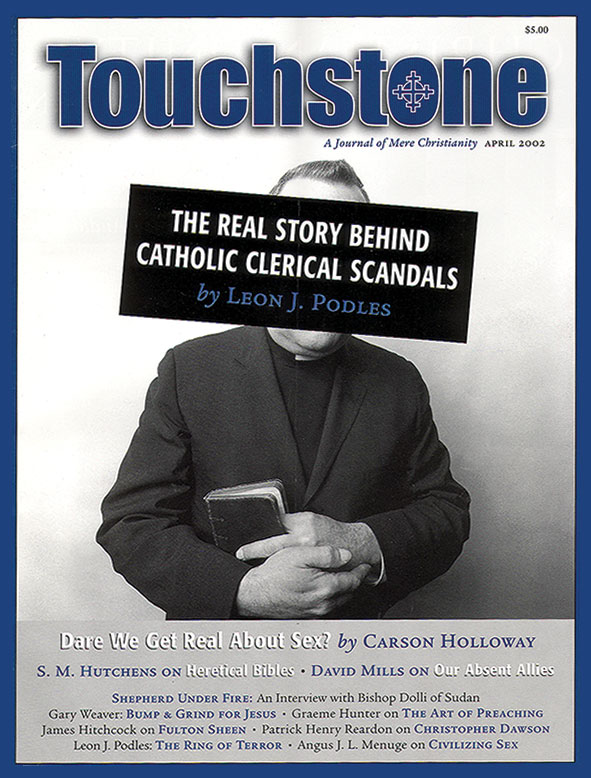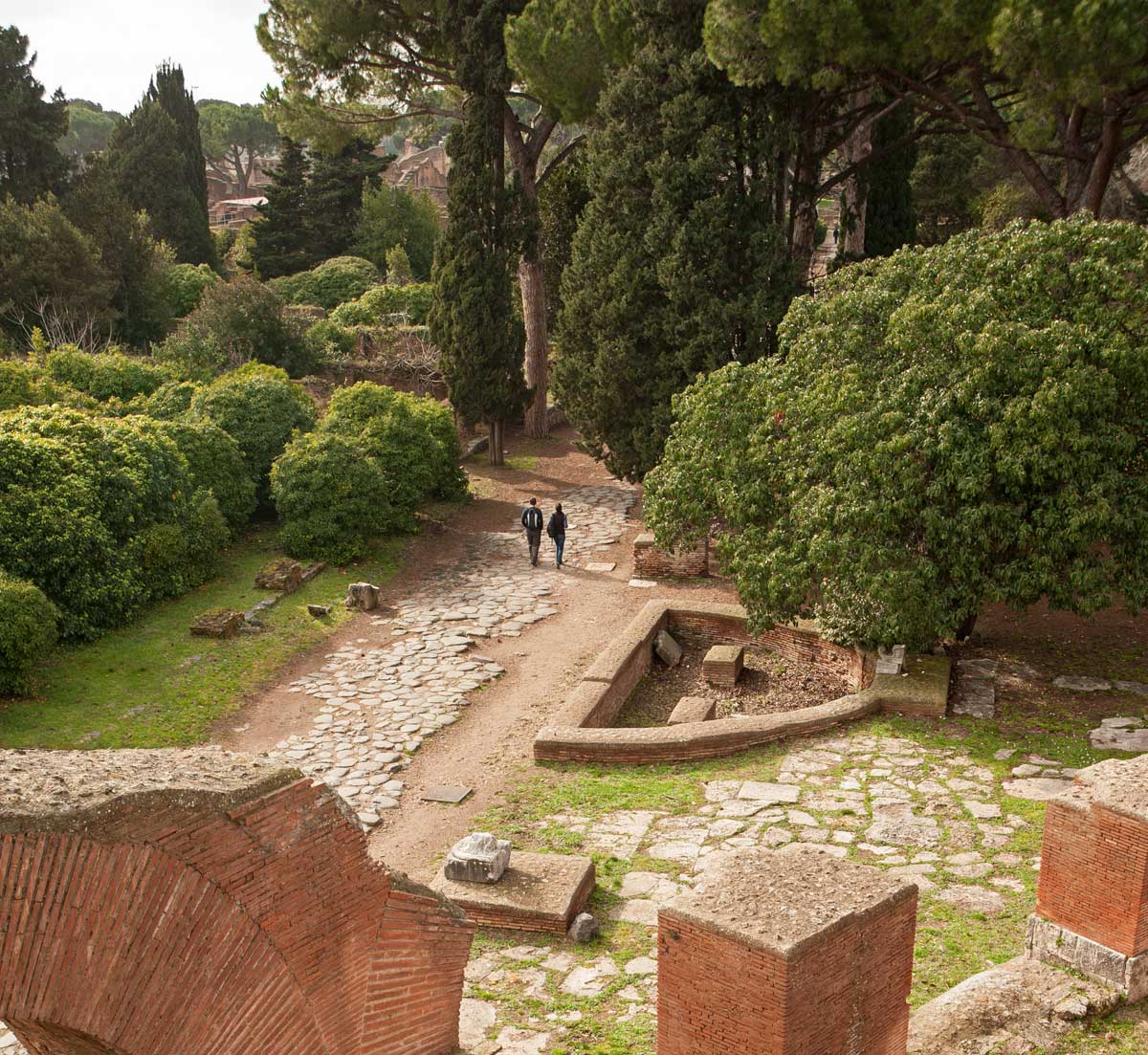That Elusive Peak Experience
Graeme Hunter on Disappointing Worship & The Art of Preaching
The secular society has much to offer, but it doesn’t satisfy everyone, or at least not all the time. That presumably has a lot to do with the interesting fact that so many of the New-York-Times-on-Sunday-morning or wash-the-car-on-Sunday-morning crowd go to church from time to time. Often they pick the Christmas or Easter season for a visit, but seldom are they intrigued enough to come back. If I were a clergyman, that double fact would interest me: the fact that they so often come and yet so seldom return.
But it doesn’t appear to interest all clergy. Some time ago Canada’s National Post quoted a United Church minister who seemed more exasperated than intrigued by such once-a-year Christians. “There’s such hype and such high expectations,” he said, that “people who don’t attend regularly come expecting a religious peak experience, and if it doesn’t happen, they’re really disappointed.”
Why People Return
The Edmonton congregation in which that minister serves is exceptionally fortunate if the peak experience only goes AWOL on high feastdays, and only for those who infrequently attend. Many of the most faithful supporters of other churches spend week after week in the pews grinding their teeth—year after year sometimes—without ever meeting the God they came to worship. Clergy usually say that they are trying to change that—and churches are always changing—yet the decline continues, as it has for over 40 years. More and more people stay away or come only occasionally to church; more and more of those who do attend consider leaving. Why is that?
The clergy love to think up gimmicks to get people back into church, but few of them reflect on why people voluntarily return, people like my friend George, for example. After his wife of several decades got the religion of feminism, she learned that husband and family were only patriarchal shackles and cut herself loose from them. George began to look around him for explanations more compelling than television talk shows could deliver. He also hoped to find a love more enduring than that of liberated women. One Sunday, a tender childhood memory brought him back to church.
Upon arriving he was bewildered at having to choose between “contemporary” or “traditional” worship. He was not delighted at the “diversity” of options, but disappointed at the institutional uncertainty it seemed to imply. As it turned out, however, the choice was illusory after all. Both shows had the same performers and much the same message, which amounted to this: “Hey, man, you’re okay.” George, however, had come back to church precisely because he was not okay. Neither guitars, nor overhead projectors, nor the easy-listening patter from the pulpit could convince him otherwise. He was not looking for “small group” involvement, for movie-nights, for activities, for fellowship—at least not at first.
He wanted exactly what the Edmonton pastor called a “peak experience” and was deeply disappointed when he didn’t find it, not even in the Sundays in the interval between Christmas and Easter. He never got it. Ultimately, he left the church again, more bitter and disoriented than when he came.
Not every random visitor at church is there for the same reasons as George, of course. And yet most of them leave again even more quickly. Clergy should be interested to know why. But this is a little difficult for them to discover. They themselves seldom quit, so most don’t know firsthand what bothers their congregations. And the quitters are no longer there for consultation. A minister’s best hope perhaps lies in hearing from someone who frequently has left different churches. I volunteer.
A Distinctive Experience
The United Church minister is right that ministers should not be expected to furnish a “peak experience” every week, since only God can decide whether he will be present or not. But it lies within the power of clergy to ensure that a visit to their church will be at the very least a distinctive experience. They can ensure that what goes on for one hour on Sunday morning is worship and not one of the currently fashionable alternatives. They can see that all things are done decently and in order.
For example, they can avoid capricious changes of focus, as in the numbing formality of “giving the peace.” Why, when the vertical focus on God has been painstakingly fostered, should the clergy shatter it by calling attention to the person beside us in the pew? Those responsible for liturgy should ask themselves why nothing like it happens in the theatre. Why does Hamlet not put down the skull, turn to the audience and say: “And now let’s all shake hands”? Players know that nothing is more important than to create and sustain the atmosphere of participation and suspense.
Churches should be all the more vigilant, because they must cultivate a still more elusive thing: an atmosphere of reverence, in which ordinary people can enter into fellowship with the living God. Let the congregation first acquire the real peace, the one that surpasses understanding, and they will spontaneously extend it to one another afterwards.
There are some other things that would once have been thought elementary but that nowadays need to be said. Clergymen can make sure the Bible is read so that it can be heard, and that it is read not just comprehensibly, but well. They can either select worthwhile music themselves or delegate that job to someone who can. And they can begin to regard preaching as a vocation, not as a wearisome exercise in amateur entertainment. For many ministers I have known, this would be a new departure, and so I should make a little clearer the remedy I am proposing.
Congregations should not be assumed to be even a little bit curious about the minister’s cat or dog or wife or children. Irrelevant personal anecdotes and clerical humor should therefore be reserved for coffee hour. Worshipers should be assumed to be at church for more serious reasons: They want to be challenged, or encouraged, or enlightened. A sermon cannot accomplish any of those things unless the preacher has crafted it with all the care he can and unless God has breathed life into it.
Where human art and divine inbreathing have conspired, ministers should not undo their effect by slovenly body language that communicates massive boredom and contempt for the task. They should neither shamble up to the middle of the aisle nor prance about among the pews when preaching. The pulpit’s high place symbolizes the lofty Word of God. A real preacher therefore belongs in it. To deliver the sermon from any other location is symbolically to proclaim it a fable, and probably not even a cunningly devised one!
The minister should avoid looking at his watch as he preaches and never assure his congregation that their ordeal will soon be over. If he is proclaiming the Living Word, he is offering them what they came to receive and need not apologize for doing so. If he is not, he should be seeking another profession.
Humor has its part in preaching but is not an end in itself. Humor that shatters our fragile sense of God’s majestic presence wounds the listener, whether or not it makes him laugh.
The Art of Preaching
Ministers for whom preaching is a vocation might also consider the art that preaching entails. “Stand and deliver” is not just the title of a movie, but the key to the right exercise of the preacher’s calling. Those who know their way in rhetoric and drama open a magnificent door of utterance, to speak the mystery of Christ. Preachers are to prophesy, which means to put themselves forward in the name of God. So many are hampered by not even knowing how to put themselves forward.
Panache and rhetorical skill are not enough, I admit. Form without content is empty. That is why ministers must also read—voraciously and widely. “A man who doesn’t read loses his advantage over those who can’t,” said Mark Twain. Clergy must speak to “all sorts and conditions of men” and in order to do so they must understand them. Great literature, social criticism, science, biography, and history all have a part to play in shaping a preacher’s mind. He must know something of the hopes, temptations, and fears of the flock entrusted to his care. And he must know something better: the Shepherd who is the proper object of hope, remedy for temptation, and answer to fear.
I have had the inestimable blessing of attending some churches in my life where the Word of God was preached artfully and reverently and where worship was considered to be the point of the gathering. People who chanced to visit them often came back again—Sunday after Sunday.
Graeme Hunter is a contributing editor to Touchstone and Research Professor of Philosophy at Dominican University College in Ottawa. He is the author of Radical Protestantism in Spinoza's Thought (Ashgate).
subscription options
Order
Print/Online Subscription

Get six issues (one year) of Touchstone PLUS full online access including pdf downloads for only $39.95. That's only $3.34 per month!
Order
Online Only
Subscription

Get a one-year full-access subscription to the Touchstone online archives for only $19.95. That's only $1.66 per month!
bulk subscriptions
Order Touchstone subscriptions in bulk and save $10 per sub! Each subscription includes 6 issues of Touchstone plus full online access to touchstonemag.com—including archives, videos, and pdf downloads of recent issues for only $29.95 each! Great for churches or study groups.
Transactions will be processed on a secure server.
more from the online archives
calling all readers
Please Donate
"There are magazines worth reading but few worth saving . . . Touchstone is just such a magazine."
—Alice von Hildebrand
"Here we do not concede one square millimeter of territory to falsehood, folly, contemporary sentimentality, or fashion. We speak the truth, and let God be our judge. . . . Touchstone is the one committedly Christian conservative journal."
—Anthony Esolen, Touchstone senior editor









